By Murugi Ndwiga
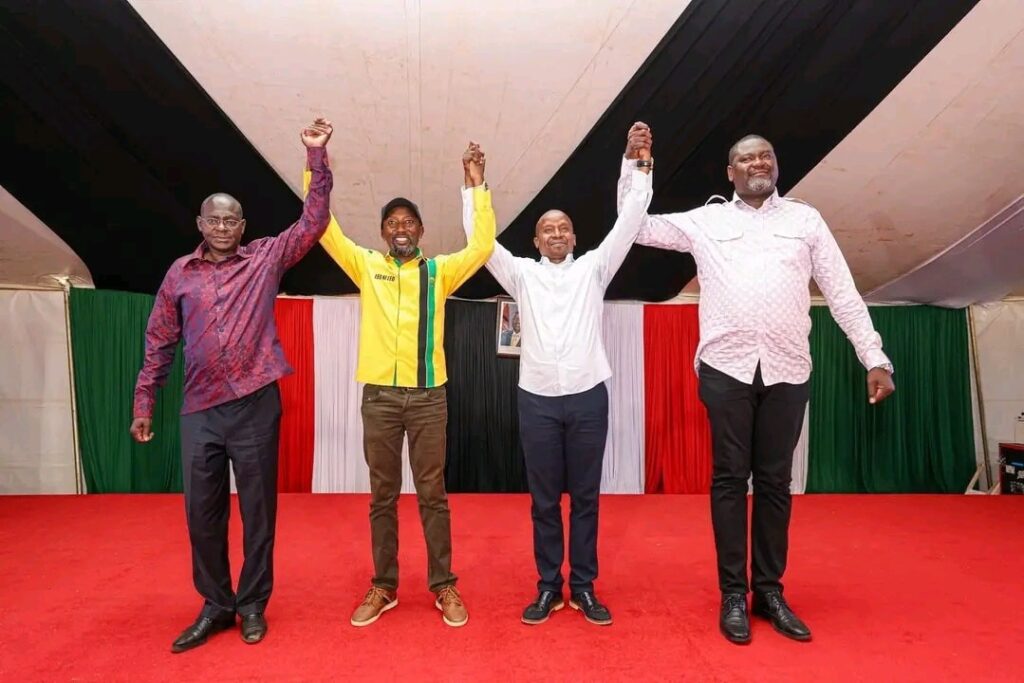
With only 23 days to go before the much-anticipated by-elections in Mbeere North and several other constituencies across the country, the quiet, sun-scorched plains of Embu County have become the unlikely epicentre of national politics. What was once viewed as a routine by-election to replace a Cabinet appointee has turned into a full-blown political showdown, one that could redefine Kenya’s 2027 political arithmetic, redraw alliances in the Mount Kenya region, and signal who truly commands the heart of the mountain vote.
A Contest Born of Political Upheaval
The Mbeere North by-election is unfolding against the backdrop of an unprecedented political earthquake. The dramatic fallout between President William Ruto and his former deputy Rigathi Gachagua, culminating in Gachagua’s impeachment, has ripped through the ruling United Democratic Alliance (UDA) and left deep cracks across the Mt. Kenya bloc. The once-solid partnership that propelled Ruto to State House in 2022 has disintegrated into public hostility and rival power camps, each claiming to speak for the mountain’s millions of voters.
For President Ruto and his allies, Mbeere North is more than a parliamentary contest, it is a referendum on whether the UDA can still command loyalty in the absence of Gachagua’s once-formidable political machinery. The constituency is being framed as the “first post-Gachagua test” for UDA’s hold on Mount Kenya.
If the ruling party wins, it will project an image of stability, signalling that Ruto’s political house is still in order despite the high-level feuds. But should the party lose, it could expose vulnerabilities that might haunt the President’s re-election bid in 2027. The symbolism would be devastating: a sign that the mountain, once the beating heart of UDA’s 2022 victory, is shifting its loyalties.
UDA Mobilises Its Full Might
Determined not to allow such an outcome, UDA has mobilised its full political and state machinery behind Leonard Muthende, the party’s flag-bearer. Embu Governor Cecily Mbarire, one of UDA’s most visible national figures and the party’s National Chairperson, has practically made Mbeere North her temporary home. Day after day, she leads convoys of vehicles emblazoned with yellow UDA banners through dusty trading centres, from Siakago to Kanyuambora, rallying residents to vote for Muthende as “the President’s choice.”
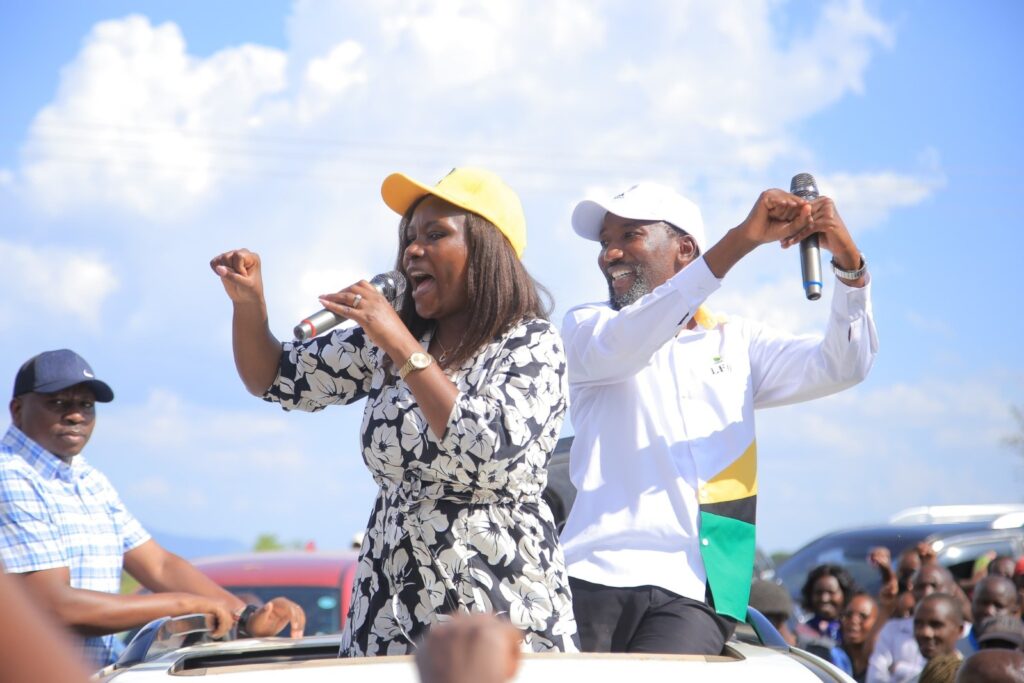
Also at the centre of the campaign is Cabinet Secretary Geoffrey Ruku, who vacated the very seat now being contested. Ruku’s elevation to Cabinet left the constituency without a representative, but his new national status has become a powerful campaign symbol. At every rally, speakers remind voters that having a CS from their midst gives Mbeere North “direct access to power,” and that electing another UDA legislator would ensure the constituency remains plugged into government.
Power and Patronage: The New Appointments
To further consolidate support, several prominent Embu leaders have been rewarded with influential national positions, a move widely seen as part of a broader political calculus.
Veteran politician Njeru Ndwiga, a respected voice in Mt. Kenya politics, now chairs the National Steering Committee on Coffee Sector Revival, overseeing one of the government’s most crucial agricultural reforms. His appointment has been used by UDA campaigners to appeal to coffee farmers across Embu and neighbouring Meru, many of whom have long complained of poor prices and neglect.
Muriuki Njagagua, appointed as Special Advisor to the President, has become the invisible strategist of the Mbeere North campaign. Behind the scenes, he has been fine-tuning messaging, coordinating local opinion leaders, and ensuring that every rally aligns with the President’s broader communication strategy.
Meanwhile, Dr. Dominic Murage Njagagua, the newly appointed Acting CEO of Consolidated Bank, has been traversing markets and business forums, pitching the UDA agenda of financial inclusion and small enterprise support. Together, these three appointments have created a perception, intentional or otherwise, that the government is using the carrot of patronage to keep Embu firmly within its orbit.
Critics, particularly from the opposition, argue that these moves amount to political “bait,” designed to entice local elites with power and perks while neglecting the region’s pressing socio-economic needs. UDA loyalists, however, counter that the appointments demonstrate President Ruto’s commitment to rewarding loyalty and empowering Embu’s leadership at the national level.
The Opposition’s Counteroffensive
Challenging UDA’s dominance is Newton Kariuki Ndwiga, popularly known as “Karish”, the Democratic Party (DP) candidate. Charismatic and confident, Karish has turned his campaign into a populist crusade against what he calls “state-sponsored politics.” Backed by veteran politicians Justin Muturi (former National Assembly Speaker) and Lenny Kivuti (former Embu Senator), Karish has portrayed himself as the champion of the ordinary citizen, the “voice of the voiceless” fighting the political establishment.
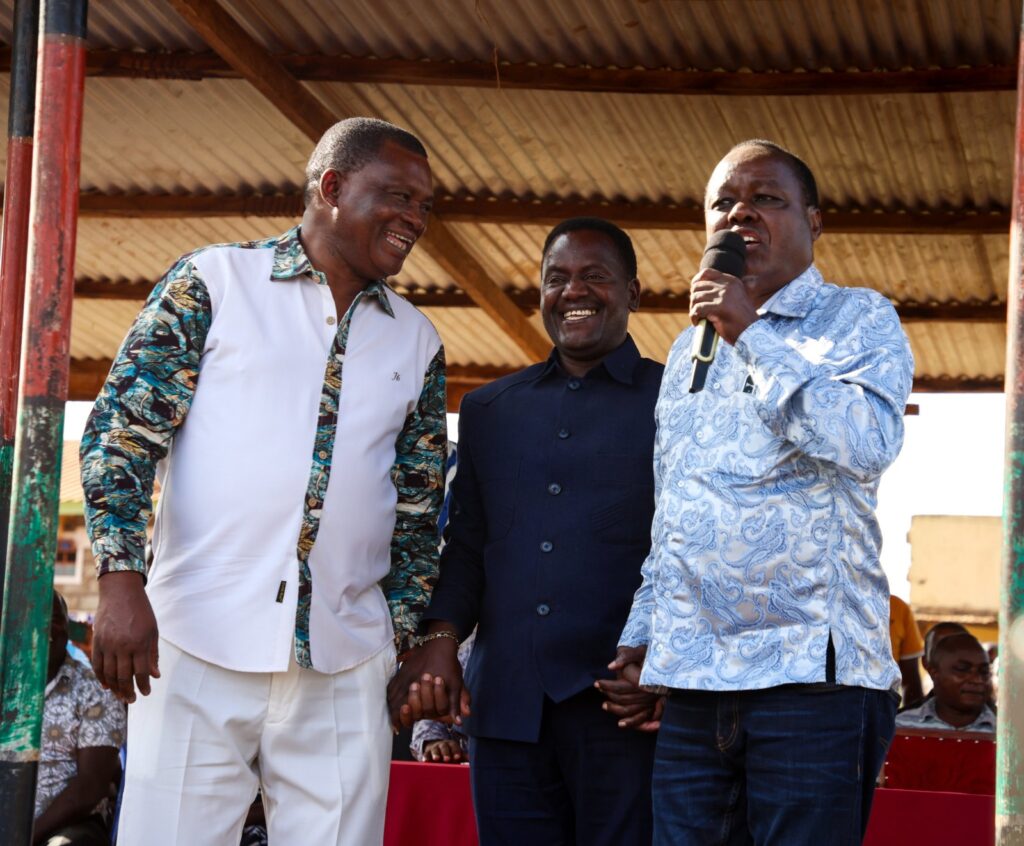
His rallies, often charged with anti-government sentiment, draw crowds of farmers and traders frustrated by the rising cost of living, unfulfilled promises of economic revival, and the perceived over-politicisation of development. “We want leaders who will speak for us, not puppets of Nairobi,” he tells cheering supporters at every stop.
If Karish pulls off an upset, the shockwaves will be felt across the political landscape. It would shatter the perception of UDA’s invincibility in Mt. Kenya, embolden opposition parties to mount fresh campaigns in other UDA-held strongholds, and reposition Embu as a swing county heading into 2027. But a loss would be equally consequential, a setback that could relegate Karish to the political sidelines, his rebellion remembered as a gallant but doomed stand against the system.
The Wild Cards: Duncan Mbui and Lawrence Ireri
The Mbeere North race, however, is far from a two-horse contest. Two additional candidates, Duncan Mbui of Chama Cha Kazi (CCK) and Lawrence Ireri of Safina Party, have injected fresh uncertainty into the equation.
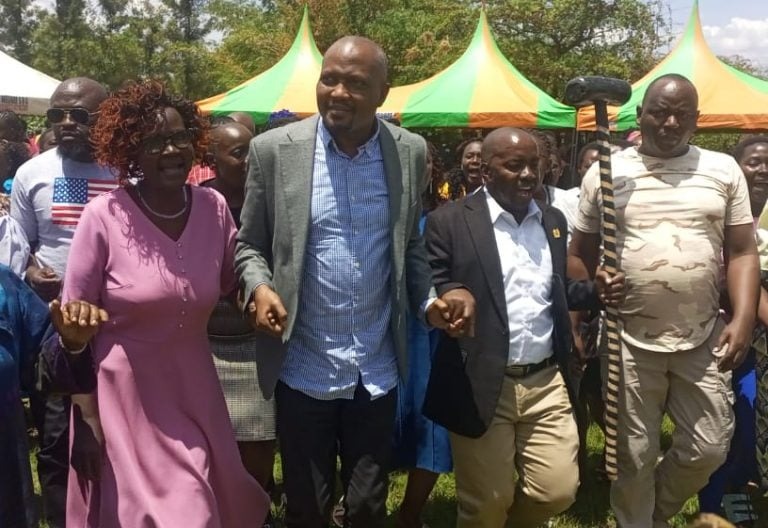
Duncan Mbui, young and fiery, has emerged as the face of Mbeere’s restless youth. His campaign, built on social media and community networks, has resonated with jobless graduates and informal traders who feel ignored by mainstream parties. By appealing to voters disillusioned with both UDA and the opposition, Mbui threatens to slice off critical votes in wards previously dominated by the big players.
Lawrence Ireri, running on a reformist and anti-corruption platform, represents the quiet, intellectual undercurrent of the race. His base consists mainly of civil servants, teachers, and middle-class professionals. While not seen as a front-runner, his presence further fragments the vote, increasing the possibility of a razor-thin margin between the main contenders.
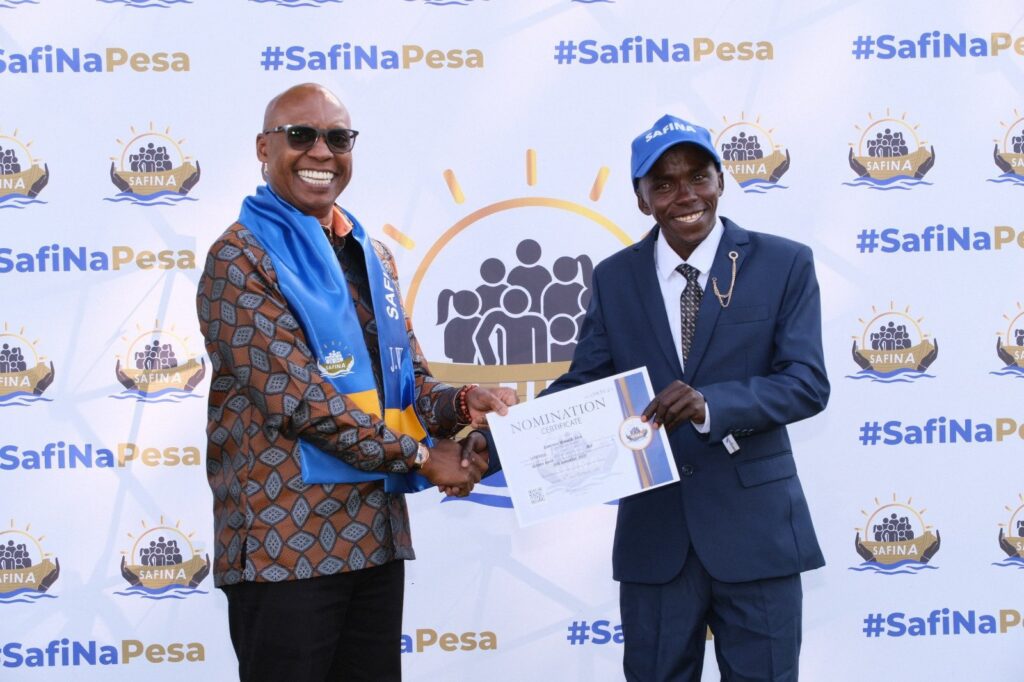
What a UDA Loss Would Mean
For President Ruto, losing Mbeere North would be more than a political embarrassment, it would be a signal of trouble ahead. A loss would shatter the image of Mt. Kenya unity that UDA has carefully cultivated and embolden splinter factions aligned with Gachagua or other emerging leaders in the region. It would also encourage defections among nervous MPs and governors, reignite debates about succession politics, and possibly force a realignment within the ruling coalition.
Symbolically, it would mark the beginning of a post-Ruto recalibration in the mountain, a dangerous narrative for a president already facing economic headwinds and a restless electorate.
What a UDA Win Would Deliver
Conversely, a UDA victory would reaffirm the President’s hold over Mt. Kenya and validate his strategic appointments of Embu leaders to national offices. It would energise the UDA grassroots, silence talk of internal dissent, and send a message that Ruto remains firmly in control of the region’s political destiny. For Embu, it would cement the county’s role as one of the government’s most loyal bastions, with Mbeere North standing as a symbol of continuity and confidence in the Ruto administration.
The Numbers Behind the Battle
According to the Independent Electoral and Boundaries Commission (IEBC), Mbeere North Constituency has 52,651 registered voters spread across four wards: Evurore, Nthawa, Muminji, and Siakago. The IEBC has cleared twelve candidates to contest the parliamentary seat, though four, Leonard Muthende (UDA), Newton Kariuki Ndwiga (DP), Duncan Mbui (CCK), and Lawrence Ireri (Safina), are the leading contenders.
The Stakes for 2027
Beyond Embu, the Mbeere North by-election is being closely monitored from Nairobi to Nyeri as a bellwether for 2027. Its outcome will shape campaign strategies, influence coalition talks, and determine how national parties approach the Mt. Kenya vote in the next general election.
If UDA retains the seat, it will strengthen the perception that the President remains unchallenged in the region. But if the opposition seizes victory, it will ignite new political fires across the mountain, reshaping Kenya’s electoral map.
Related Articles: https://flashnews.co.ke/ruto-faces-tough-2027-talks-as-oburu-oginga-demands-odm-deputy-presidency-slot/
As the campaigns grow louder and tempers flare in the final days, one thing is certain: Mbeere North is no longer just another constituency. It has become a political battleground where the future of the mountain and perhaps the presidency itself will be tested.
When the ballots are counted and the dust finally settles, Kenya will know whether the ruling party’s grip on Mt. Kenya remains firm or whether the winds of change have begun to blow. And as history has often shown, those winds can carry more than votes, they can carry the fate of a nation.

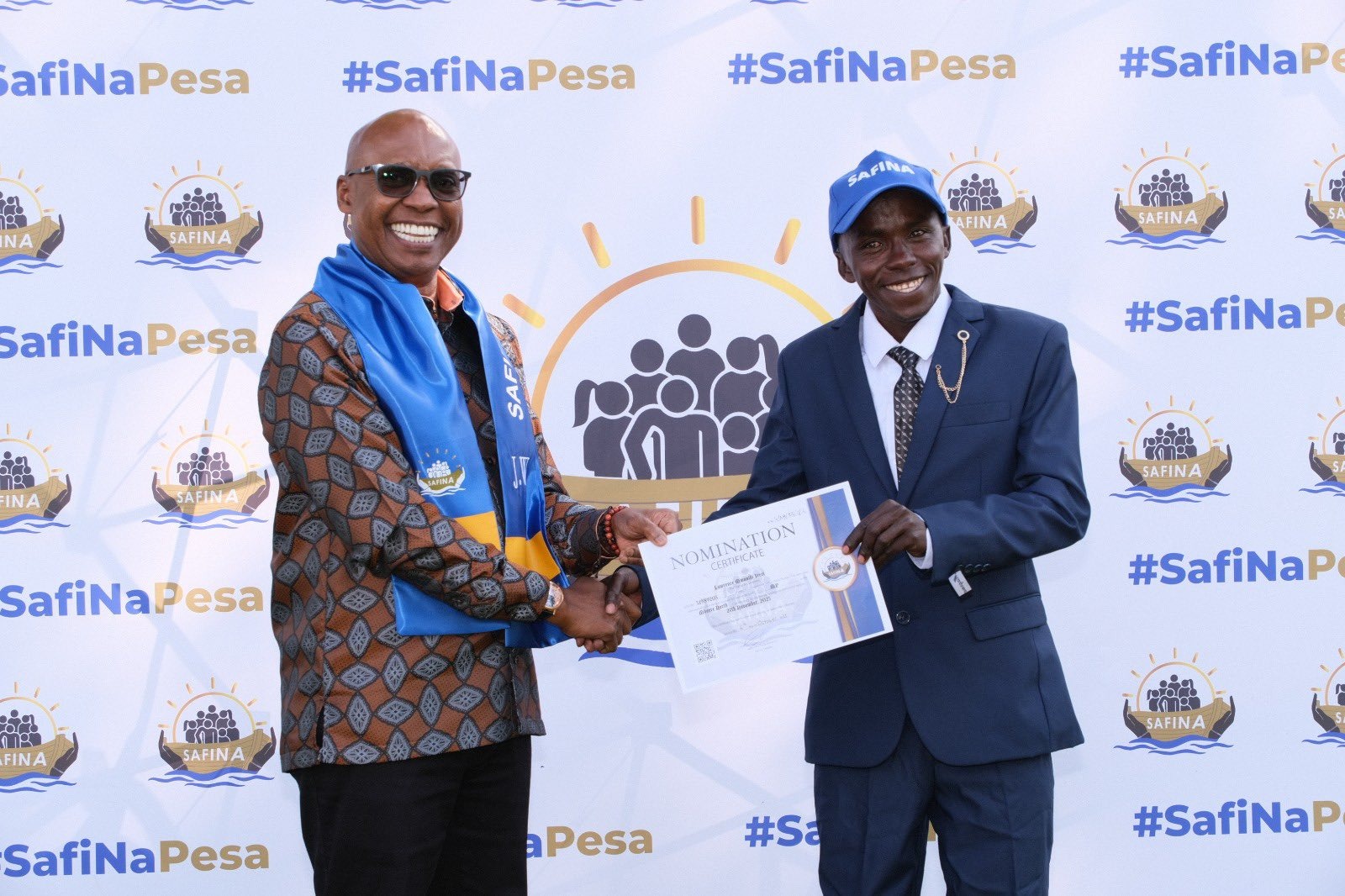
**aqua sculpt**
aquasculpt is a premium metabolism-support supplement thoughtfully developed to help promote efficient fat utilization and steadier daily energy.
Your article helped me a lot, is there any more related content? Thanks!